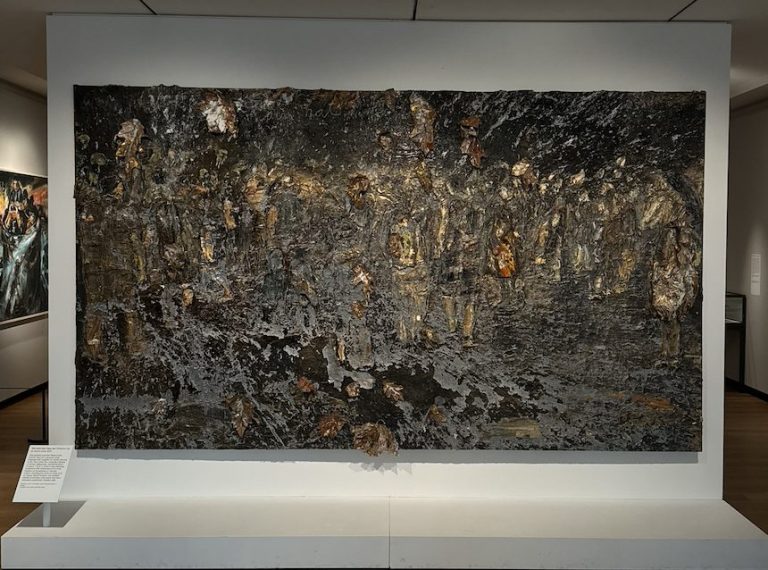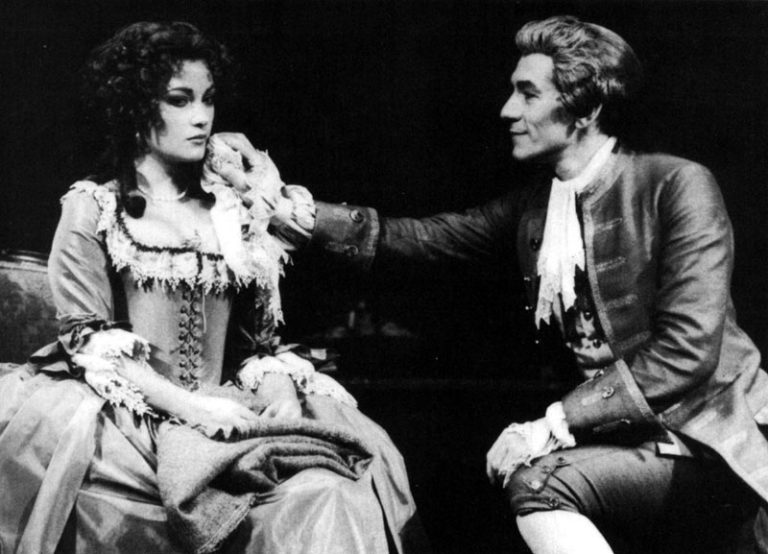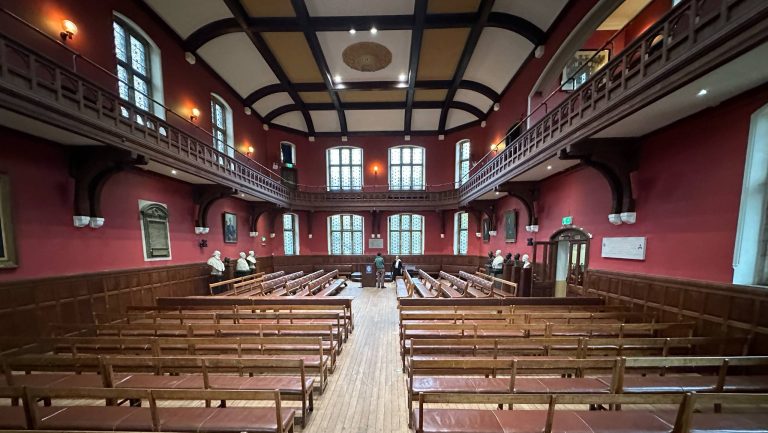I still remember the first time I saw Anselm Kiefer’s work. I was in the Pompidou Centre, Paris, and I’d been stumbling around the seemingly endless number of rooms for hours. I was in the state where you’ve taken in so much art that nothing excites – another room of cubism leaves you unmoved; you’re oversaturated with abstraction.
Then I stepped into another room, scarcely noticing the change, and stopped straight away. It was a plain room with some glass cabinets containing submarines. This might sound bizarre, more like what you’d expect to find at a war museum than a modern art gallery, but I was captivated. The base of the cabinets was filled with a greyish sand, and the boats, huge and elongated, painted a rusty orange or darkish green, hung suspended in the air, silent and supine. They were haunting. For reasons I still cannot articulate, I was frozen by their presence, as if I’d stumbled upon some secret, hideous crime scene.
A few years later, elsewhere – Germany, perhaps – I again was wandering the halls of a practically-deserted gallery late in the day. Entering another room, with capacious ceilings, I came head-to-head with Kiefer once again. This time I recognised his work instantly, having spent some time researching him after the Paris encounter. Even though I’d seen pictures of his incredible work, nothing prepared me for the sight of them in person: the canvases are enormous, achingly wide, and the scenes portrayed speak to the complete devastation, annihilation, of war and destruction. Charcoal black is set against greys and reds of flames, whilst use of wood and other materials like nets makes the works practically fall off the walls.
Kiefer is clearly fascinated by war, but particularly those involving his native country, Germany. At the start of his career, in the late 60s, he gained infamy for controversial performances and photos in which he performed the Nazi salute, challenging the taboos and culture of post-WW2 Germany, a country famed for its culture of Vergangenheitsbewältigung (coming to terms with the past). At a time when writers and philosophers wished to delicately work through the collective trauma of the Holocaust and Adorno famously questioned whether poetry was possible after Auschwitz, Kiefer crashed onto the scene, re-opening sealed conversations and old wounds.
Given this tumultuous personal history, an exhibition tracing the development of one of the most celebrated contemporary artists sounds particularly fascinating, and this is exactly what the Ashmolean’s exhibition Anselm Kiefer: Early Works delivers. There are none of the vast works for which he is best known here: as Wim Wenders’ gorgeous documentary, Anselm, shows, the scale on which his later works are produced requires teams of people and machinery. Instead, what the exhibition shows is not only Kiefer’s obsession with history, war, and German culture, but also rare moments of beauty, and a deep affection for romanticism.
Even in his earliest works, the traces of what’s to come are apparent: swirling paints illuminate tortured faces of German soldiers and strategists, whilst austere lines in watercolour depict abandoned Nazi buildings in all their severity. There are dark reds everywhere: fires and blood, echoing both the destruction of bodies but also of books and art. As the recurring motif of the palette suggests, the early Kiefer is constantly considering the possibility of art itself, particularly important against the backdrop of Hitler’s crusade against ‘degenerate’ art. In possibly my favourite work on display, Unternehmen ‘Trappenfang’, the dark slashes which are instantly recognisable are set against whites and blues more evocative of impressionism than anything else, and the paths in the field extend for almost the full length of the canvas, in a manner similar to that of Béla Tarr’s magnificent tracking shots.
But it’s not all darkness: in the last room, we see lighter watercolours – landscapes and portraits, more typically ‘beautiful’ than the ominous and overwhelming works he is associated with. His landscapes recall the high point of German romanticism, which celebrated the power of nature, whilst more abstract watercolours are akin to the gorgeous colours and natural forms of Odilon Redon. Even amongst these airy works, there’s still intensity and suffering: a striking photo depicts the burning of a field, with thick black smoke billowing from the left-hand side, becoming a solid rectangle of darkness.
In sum, then, there’s nothing individually as breathtaking or monumental as his later work, but the exhibition provides a fascinating and oftentimes stunning overview of the development of one of the world’s best contemporary artists.











